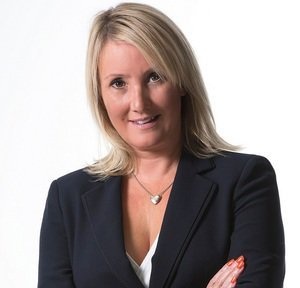Care minister: 'We're missing a trick' if we don't help informal carers like my mother
Hundreds of thousands of unpaid carers across England will have better job prospects, the Care Minister has promised as part of an action plan she hoped her own mother ‘could have benefitted from’ when she was a carer.

Care minister Caroline Dinenage has announced a two-year action plan to help informal carers get jobs, learn new skills and get support from the communities they live in.
Caroline Dinenage said: “My mother cared for my grandmother when she developed dementia and she balanced this with supporting me through the birth of my first child.
“Her support was indispensable but it must have been a challenge to balance these responsibilities and still have time for herself.
“I like to think she could have benefitted from the plan we’re now working to roll out to more carers, to help improve and enrich their lives.”
The Department of Health and Social Care’s action plan includes:
• A new scheme to boost employment support for carers, with best practice for flexible working, to help carers continue working alongside their caring role.
• A £500,000 Carer Innovations Fund to encourage innovative technology and other projects to give support to carers.
• A review to identify ‘hidden’ young carers from black, Asian and minority ethnic families to give them practical and emotional support "to stay healthy, happy and make the most of their education".
She said: “Any one of us could become a carer at some point in our lives, Government and society must do more to support them. As a former business owner, I recognise the contribution carers could bring if employed. Why can’t more employers offer flexible options that enable carers to work alongside caring, or re-enter the workforce after time off?
"We’re missing a trick if we don’t give carers opportunities to use their skills and experience and develop personally."
One in ten adults in the UK provides unpaid care for a family member or friend who due to illness, disability, a mental health problem or an addiction, cannot cope without their help.
The Government heard views from more than 6,800 people, including informal carers.
Katie: ‘A dark time’
Aged only 24-years-old, Katie cares for her mother who is in her early 60s and has a diagnosis of vascular dementia. She was diagnosed in 2012 – Katie’s first year at university.
Katie found herself taking weeks off at a time to care for her mother and her mother’s health deteriorated to the point where she required 24-hour care. Katie felt that she could not continue her education and became her mother’s full time carer.
Many of Katie's friendships broke down because she was always at home and could not make plans to spend time away from caring. Katie’s emotional health and wellbeing also declined rapidly and she described this period as a dark time in her life. Katie said: “When I first started caring for my mother I didn’t realise how much I’d be taking on and what a severe emotional impact it would have on my life. My caring responsibilities even meant I wasn’t able to continue my education."
But after getting help, Katie is more positive about the future. “When I started receiving support from Liverpool City Council and Barnardo’s, I saw a big improvement in my mental health and my confidence and I was able to return to university. I was supported to complete my degree.”
Latest News Analysis
 04-Sep-19
Extra £1.5 billion announced for social care in Chancellor's Spending Review
04-Sep-19
Extra £1.5 billion announced for social care in Chancellor's Spending Review
 17-Jul-19
Flexible Working Bill for all jobs gets MPs approval - delighting parents, disabled and carers
17-Jul-19
Flexible Working Bill for all jobs gets MPs approval - delighting parents, disabled and carers
 18-Jun-19
Overnight care workers forced to sleep in offices and told 'bring your own bedding'
18-Jun-19
Overnight care workers forced to sleep in offices and told 'bring your own bedding'
 11-Jun-19
PM candidates on social care: Rory Stewart calls fixing care an 'unfinished revolution'
11-Jun-19
PM candidates on social care: Rory Stewart calls fixing care an 'unfinished revolution'
 05-Mar-19
Amber Rudd announces scrapping of controversial PIP payment review for pensioners
05-Mar-19
Amber Rudd announces scrapping of controversial PIP payment review for pensioners